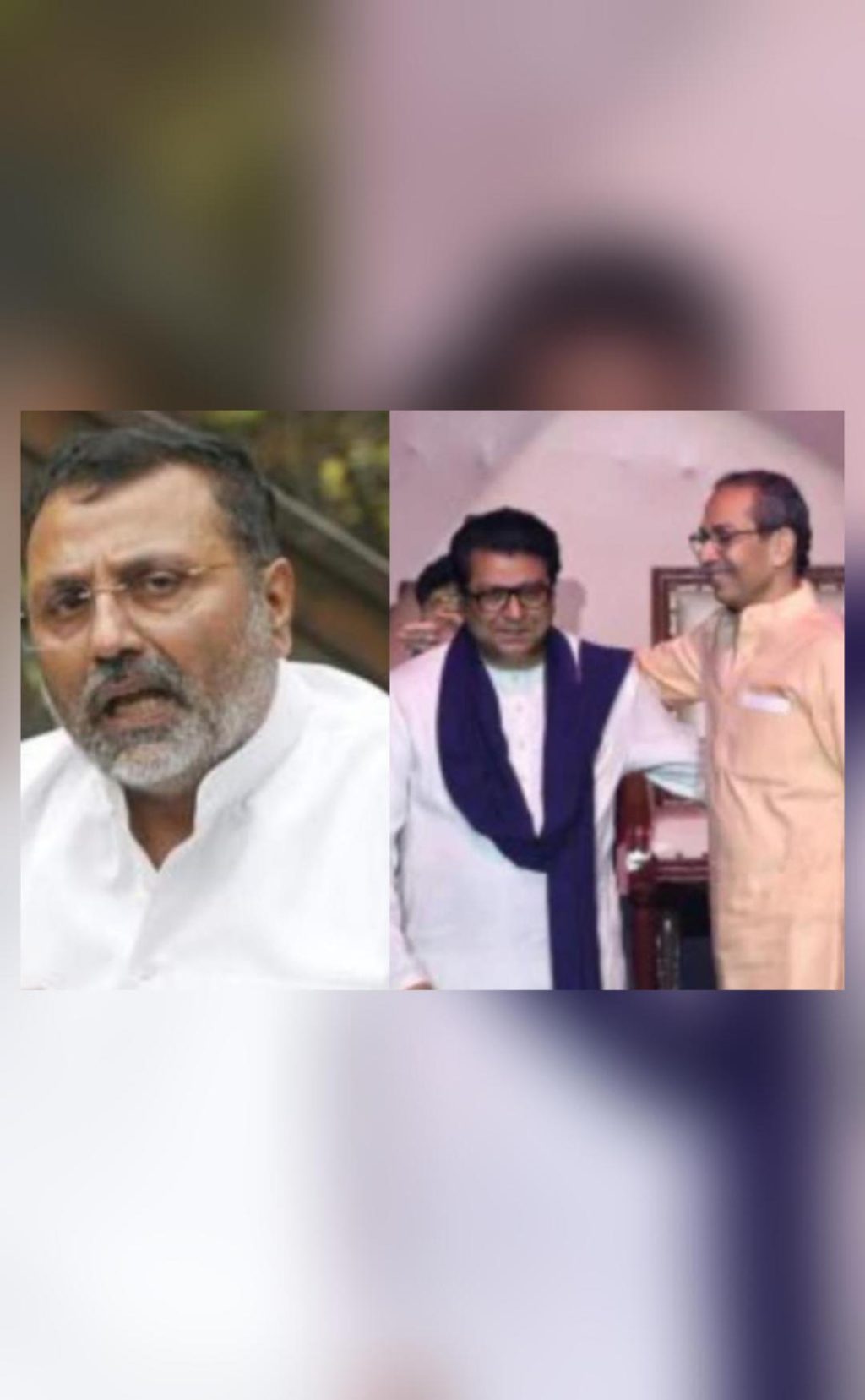
Title: Ambani Speaks Little Marathi, Go to Him If You’ve Guts: Dubey to Raj-Uddhav
The Marathi language row has taken a new turn, with BJP leader Nishikant Dubey sparking a controversy by targeting the Thackeray brothers, Raj and Uddhav, over their demands for speaking Marathi. In an unexpected move, Dubey, a Member of Parliament (MP), suggested that people who have the guts to beat up shopkeepers and traders for not speaking in Marathi should instead go to the residence of Mukesh Ambani, the business tycoon, who allegedly speaks very little Marathi.
Dubey’s statement came after Raj Thackeray, the chief of the Maharashtra Navnirman Sena (MNS), and Uddhav Thackeray, the chief of the Shiv Sena (UBT), demanded that people in the state should speak in Marathi, especially in commercial areas. This move has sparked outrage, with many opposing the idea of using force to enforce language norms.
In response, Dubey took to social media to express his views, saying that Raj and Uddhav Thackeray were beating up “poor” people for not speaking in Marathi. He then went on to make a surprising comment, saying that if people have the guts to beat up others for not speaking in Marathi, they should instead go to the residence of Mukesh Ambani, who allegedly speaks very little Marathi.
Dubey also took a swipe at the State Bank of India (SBI) chairman, saying that he doesn’t speak Marathi either. He jokingly suggested that if people have the guts to beat up others for not speaking in Marathi, they should try hitting the SBI chairman instead.
Dubey’s statement has sparked a heated debate, with many people criticizing him for his comments. While some have applauded his boldness, others have slammed him for targeting the Thackeray brothers and for making light of the issue.
Reacting to Dubey’s statement, many have pointed out that the MP’s comments are hypocrisy at its best. “How can he expect others to speak in Marathi when he himself doesn’t speak the language?” asked a social media user. “It’s easy to make fun of others when you’re not the one facing the consequences,” added another.
Others have criticized Dubey for targeting the Thackeray brothers, saying that they are simply trying to promote the use of Marathi language in the state. “The Thackerays are not beating up people for not speaking in Marathi,” said a supporter of the brothers. “They are simply trying to promote the language and preserve the cultural identity of Maharashtra.”
The Marathi language row has been ongoing for some time, with both the MNS and the Shiv Sena (UBT) demanding that people in the state should speak in Marathi. While some people have welcomed the move, others have opposed it, saying that it’s a violation of individual rights to choose their language of communication.
In recent weeks, there have been reports of shopkeepers and traders being beaten up for not speaking in Marathi. While some have supported the move, saying that it’s necessary to promote the use of the language, others have condemned the violence, saying that it’s unacceptable to use force to enforce language norms.
The controversy has also sparked debates about language and identity, with some people arguing that language is a fundamental aspect of a person’s identity. “Language is not just a means of communication, it’s also a way of expressing one’s culture and identity,” said a linguist. “Forcing people to speak in a particular language is a violation of their rights and can lead to cultural erosion.”
Others have argued that the Marathi language is not just a means of communication, but also a symbol of cultural identity. “Marathi is not just a language, it’s a way of life,” said a cultural critic. “It’s a symbol of our cultural heritage and our identity as Maharashtrians.”
In conclusion, Dubey’s statement has sparked a heated debate, with many people criticizing him for his comments. While some have applauded his boldness, others have slammed him for targeting the Thackeray brothers and for making light of the issue. The Marathi language row is a complex issue, and both sides need to be heard. However, one thing is clear: language is a fundamental aspect of our identity, and it’s essential to respect the rights of individuals to choose their language of communication.






